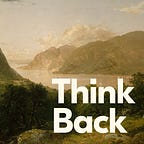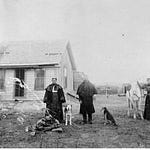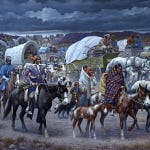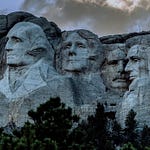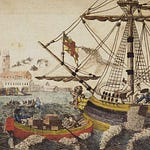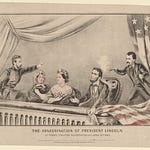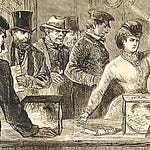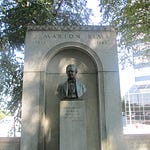What do most of us really know about the history of Chinese Americans? For many, it begins and ends with the railroads or the Chinese Exclusion Act of 1882. That’s what makes Michael Luo’s new book, Strangers in the Land: Exclusion, Belonging, and the Epic Story of the Chinese in America, such an essential work. It’s a deeply American story, both in its dreams and its brutal realities. Luo, executive editor of The New Yorker, traces not just how Chinese immigrants were excluded, but also how they insisted on belonging, even as they became targets of one of the most sustained racial backlashes in U.S. history.
In this episode of Think Back, Michael and I talk about the little-known lynchings that terrorized Chinese communities in the 19th century, the role of Chinese exclusion in shaping America’s racial and political order after the Civil War, and the eerie echoes of that past in our own moment—from the spike in anti-Asian hate during the Covid pandemic to debates over citizenship and immigration in the Trump era. We also discuss the surprising repeal of exclusion during World War II, the long legacy of psychic homelessness for generations of Chinese Americans, and how the myth of the “model minority” obscures a much more complicated history.
Our conversation is wide-ranging, personal, and timely. Michael reflects on the journey that led him to write this book, and how diving into history helped him better understand both his country and his own family’s story.
I hope you enjoy the episode—and if you do, please consider rating and reviewing Think Back, sharing it with friends, or supporting the show.
Music by Akiko Sasaki (“The Union,” by Louis Moreau Gottschalk) and Zachary Solomon


